XRF test results for Pioneer Woman Instant Pot: Heating element positive for 443 ppm Lead (+ 642 ppm Cadmium) — Instant Pot is the “Lead-safest” option out there!
This article has the XRF test results for a Pioneer Woman Instant Pot purchased from Walmart in December, 2018.
All components with the test results are listed below;
please scroll down past each the images to see full results.
Here’s an affiliate link to this product on Amazon: https://amzn.to/2LX0VyR,
Overview:
- The amount of Lead found in the heating element of this Pioneer Woman Instant Pot (using an XRF instrument) is consistent with levels in other Instant Pots (see my other Instant Pot article here).
- This amount of Lead found in a heating element is the LOWEST detectable amount of Lead I have ever found in any similar heating element for any appliance of this type! This is likely because of the thick gray coating over the element (which appears to be some sort of paint or enamel).
- The low amount of Lead (in this case) is also not in any of the food contact surface components of this appliance.
- The company has also been incredibly responsive — they are aware of the issue and working to reduce the (comparatively) low amount of Lead in that component (even though they are currently in full regulatory compliance with the current levels).
- Here’s a link to a letter from them in response to when I initially published my findings two years ago.
- Here’s an example of a similar heating element in a rice cooker that has much higher Lead readings.
- Here are some examples of other pressure cookers, slow cookers, and crock pots that I have tested (most of which have been positive for Lead — many of which have been positive for Lead in food surface contact areas).
As a result of the above set of considerations, it is my personal opinion that the Instant Pot is currently the safest choice for a slow cooker or rice cooker type appliance (“safest” from a toxicant perspective).
Personal note: After testing this Instant Pot, we promptly got rid of our other pressure cookers and our rice cooker (which were each positive for higher levels of Lead than the Instant Pot in one or more component), and now use a regular (not this pretty Pioneer Woman version, but this exact model) Instant Pot in our home.
Each test results set reported below is from a test conducted for a minimum of 60 seconds. If a metal is not listed, then the test was a non-detect (“negative”). Each test is done in Consumer Goods Mode, unless otherwise noted.
All accessible components were tested.
Continue reading below the images.
Floral Exterior (image above):
120 seconds
- Chromium (Cr): 72,600 +/- 600 ppm
- Tin (Sn): 150 +/- 35 ppm
- Zinc (Zn): 336 +/- 73 ppm
- Copper (Cu): 1,045 +/- 155 ppm
- Nickel (Ni): 518 +/- 226 ppm
- Iron (Fe): 775,100 +/- 1,500 ppm
- Titanium (Ti): 130,100 +/- 900 ppm
- Cobalt (Co): 7,378 +/- 965 ppm
- Manganese (Mn): 11,200 +/- 900 ppm
Continue reading below the images.
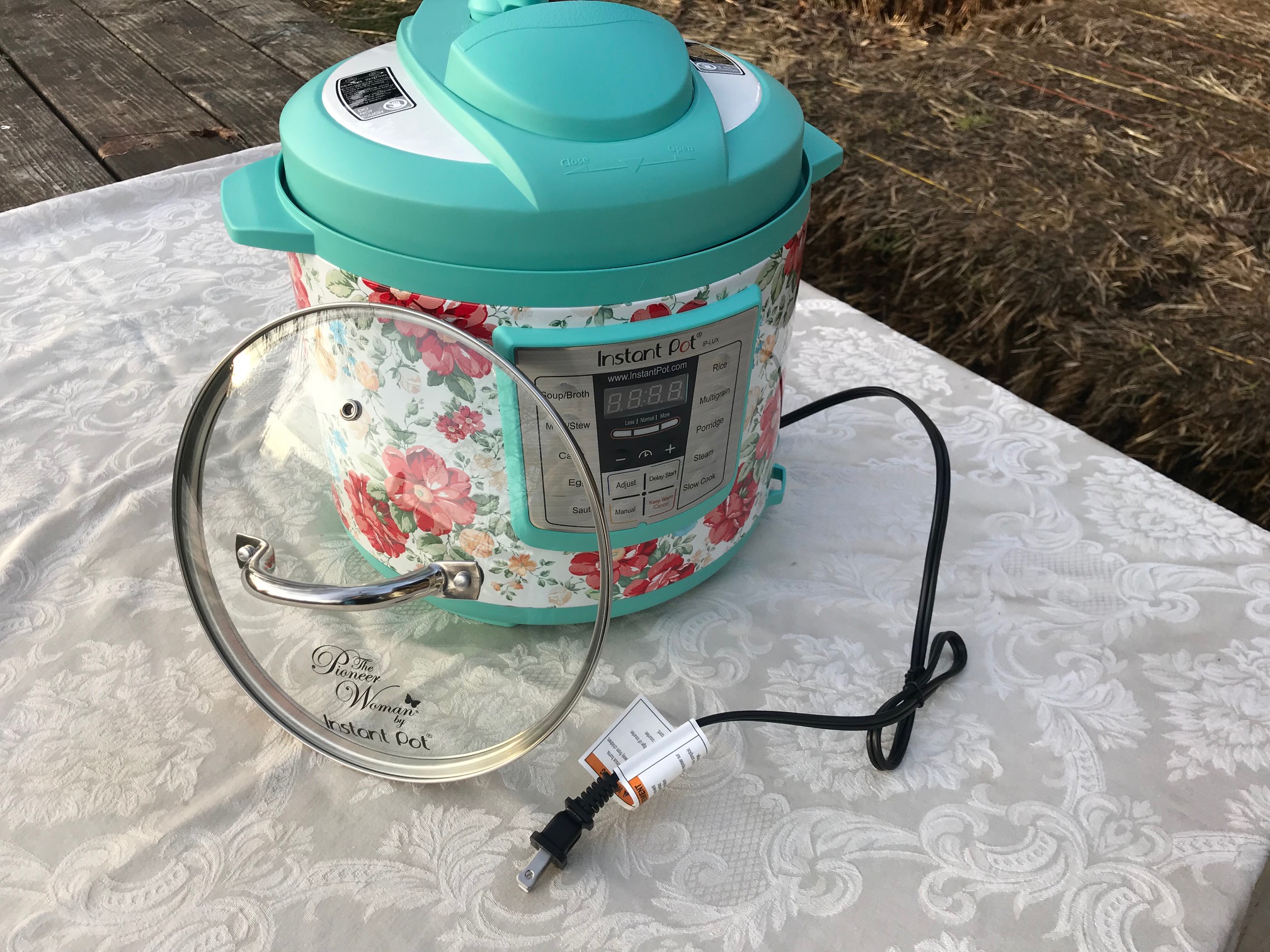
- Chromium (Cr): 300 +/- 165 ppm
- Antimony (Sb): 8,195 +/- 159 ppm*
- Bromine (Br): 9 +/- 4 ppm
- Zinc (Zn): 437 +/- 36 ppm
- Iron (Fe): 171 +/- 68 ppm
*This is a common level of Antimony to find in a modern electrical cord. It is a component of fire retardants. It is also a known carcinogen in rats.
Continue reading below the images.
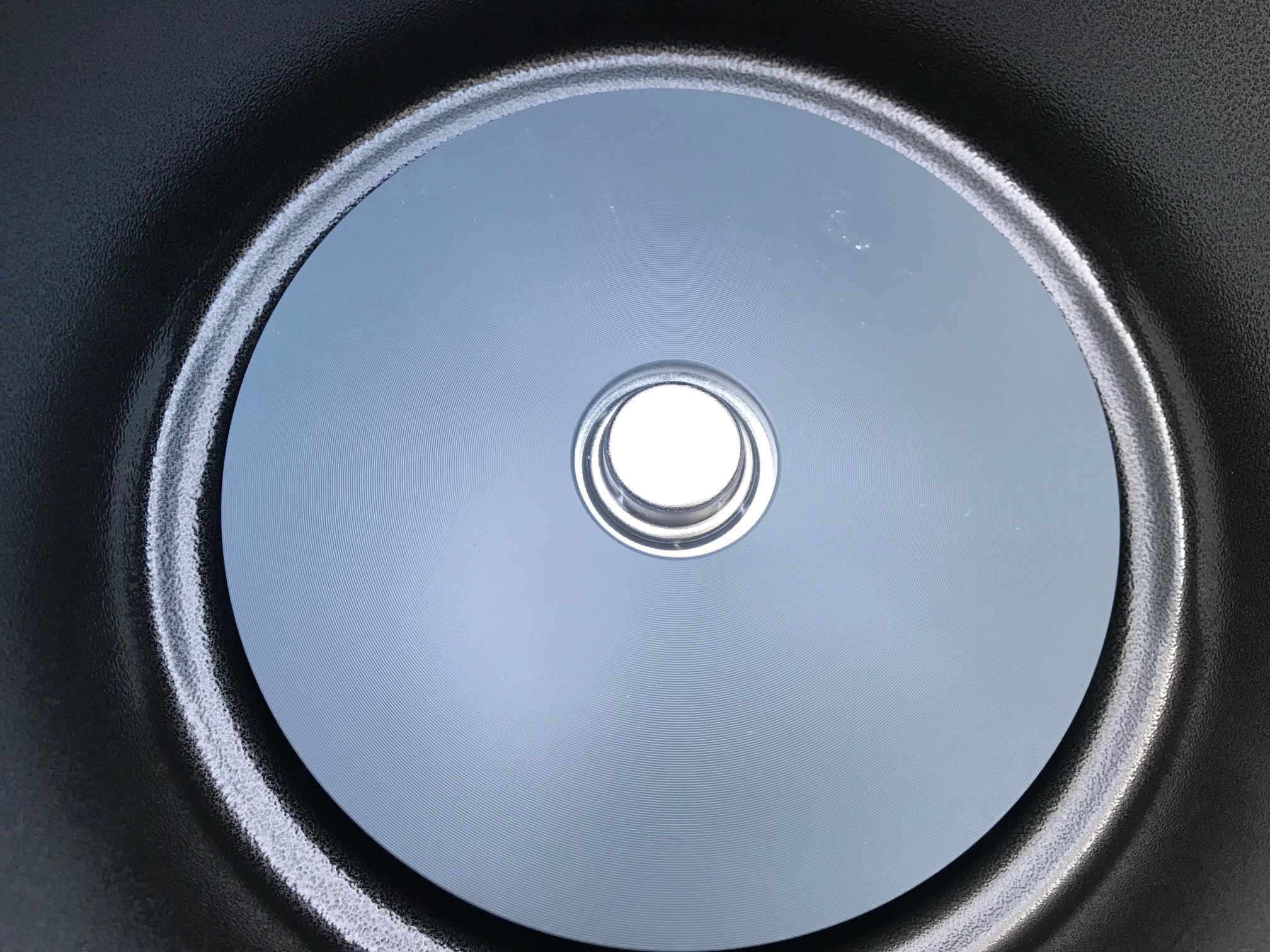
120 seconds
- Lead (Pb): 443 +/- 25 ppm
- Cadmium (Cd): 642 +/- 23 ppm
- Barium (Ba): 1,796 +/- 170 ppm
- Chromium (Cr): 459 +/- 94 ppm
- Selenium (Se): 25 +/- 12 ppm
- Tin (Sn): 4,729 +/- 76 ppm
- Zinc (Zn): 4777 +/- 91 ppm
- Copper (Cu): 8877 +/- 146 ppm
- Nickel (Ni): 205 +/- 24 ppm
- Iron (Fe): 6,189 +/- 138 ppm
- Bismuth (Bi): 57 +/- 14 ppm
- Titanium (Ti): 14,000 +/- 500 ppm
NOTE: Aluminum (Al) was also listed at 928,800 +/- 3,400 ppm in “Metals Mode” (in Consumer Goods Mode, the instrument doesn’t report for [i.e. list detection data for] Aluminum; that’s why it’s handy to have the optional Metals Mode software module — developed for aerospace companies for alloy confirmation and certification purposes), for expanded XRF detection data that lists additional metals.
Continue reading below the images.
Center dot of Heating Element (silver in color — image above:)
- Lead (Pb): 227 +/- 20 ppm
- Barium (Ba): 5,504 +/-271 ppm
- Chromium (Cr): 221 +/- 109 ppm
- Bromine (Br): 9 +/- 5 ppm
- Tin (Sn): 453 +/- 40 ppm
- Zinc (Zn): 70 +/- 20 ppm
- Nickel (Ni): 81 +/- 24 ppm
- Iron (Fe): 1,552 +/- 97 ppm
NOTE: In “Metals Mode,” Aluminum (Al): 994,400 +/- 1,600 ppm
Continue reading below the images.
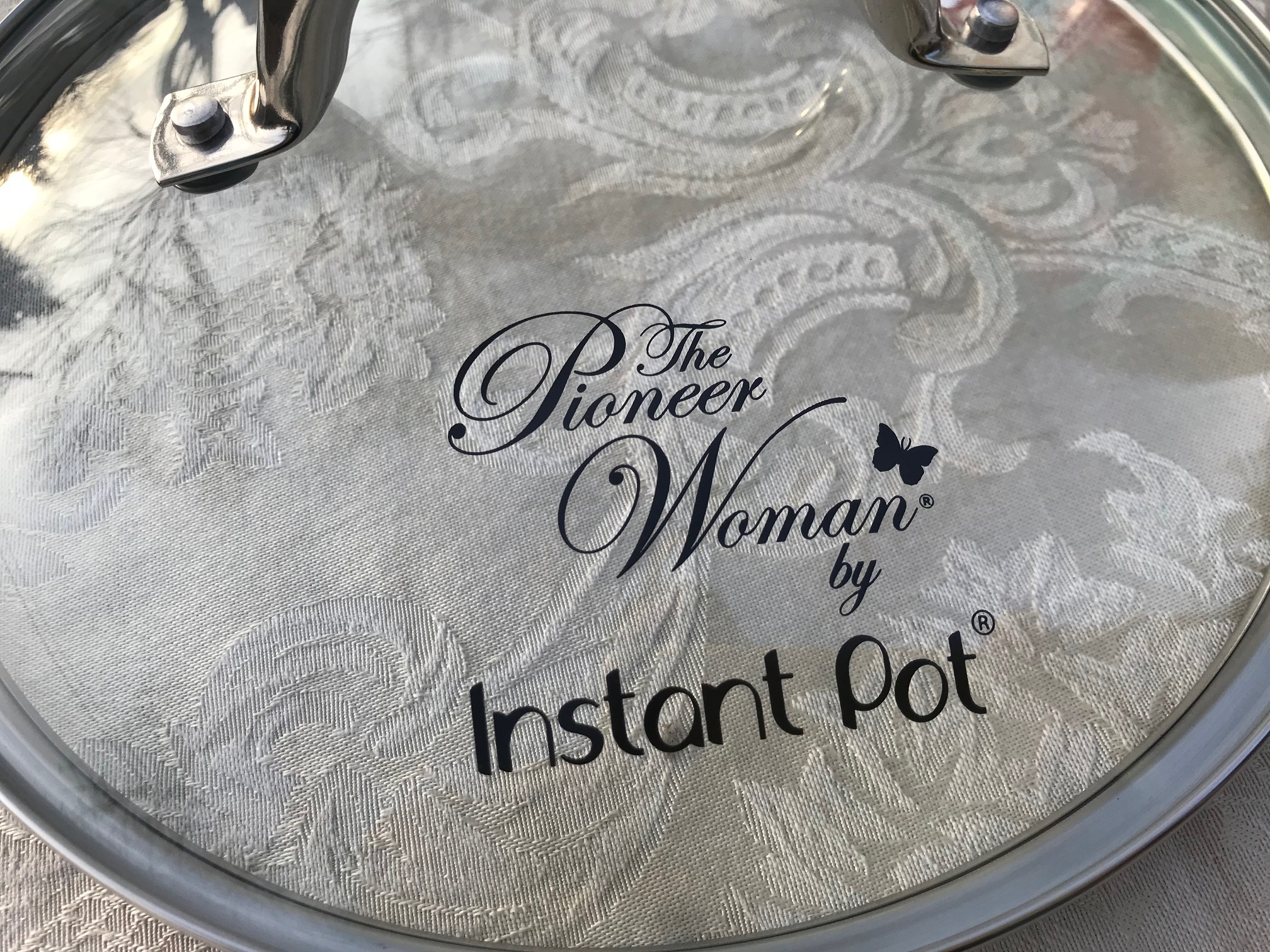
(I really thought this black paint might turn out positive for a high level of Lead, but it was NEGATIVE!) YAY! #GoodJobInstantPot.
- Chromium (Cr): 20,500 +/- 600 ppm
- Tin (Sn): 72 +/- 15 ppm
- Zinc (Zn): 3,456 +/- 134 ppm
- Copper (Cu): 6,636 +/- 228 ppm
- Iron (Fe): 893 +/- 146 ppm
- Bismuth (Bi): 104 +/- 15 ppm
- Titanium (Ti): 2,228 +/- 153 ppm
Continue reading below the images.
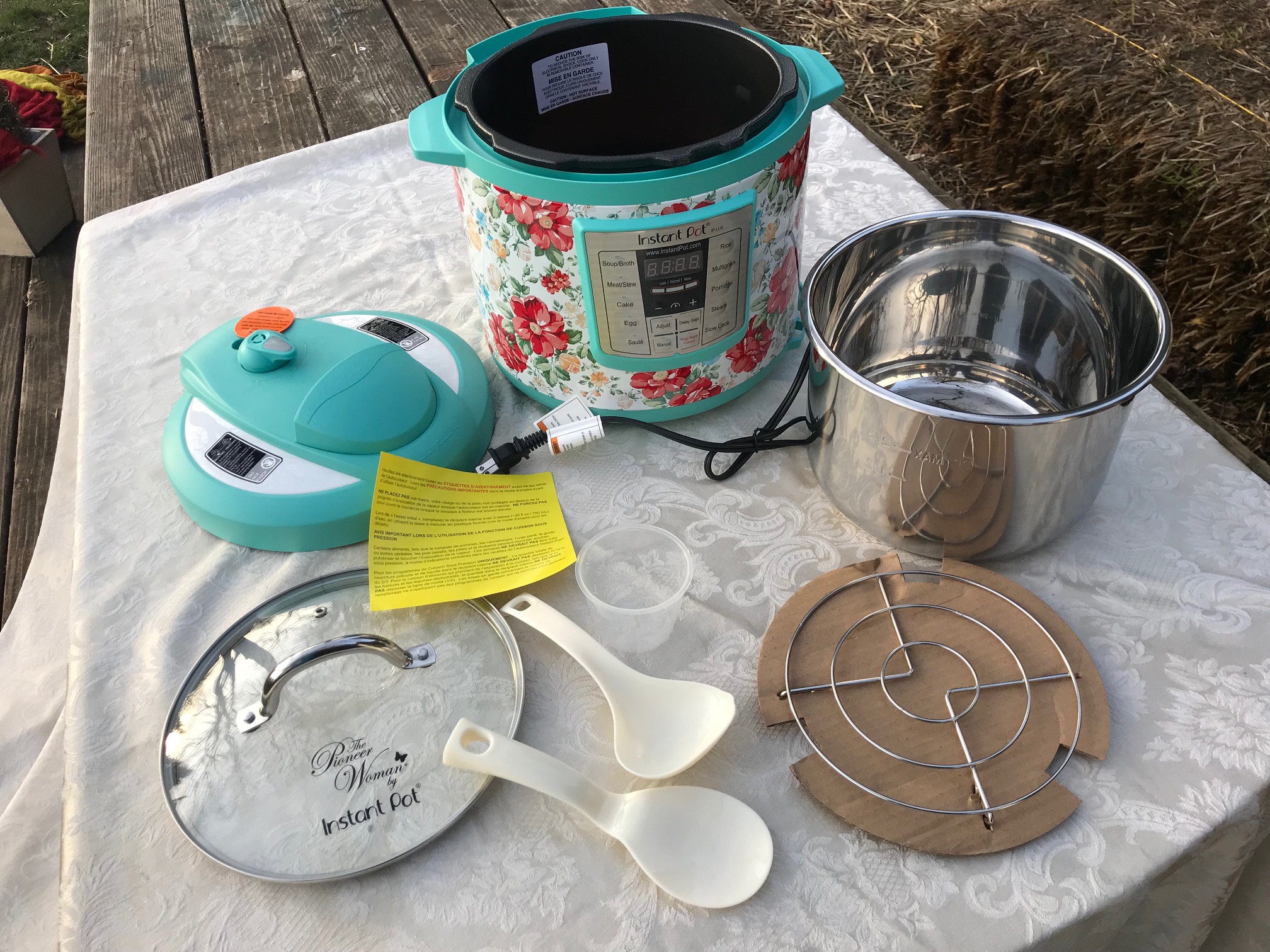
60 second reading: Stainless Steel #304
- Chromium (Cr): 155,200 +/- 1,100 ppm
- Nickel (Ni): 88,300 +/- 1,700 ppm
- Iron (Fe): 736,600 +/- 2,400 ppm
- Vanadium (V): 1,086 +/- 208 ppm
- Cobalt (Co): 4,190 +/- 1,428 ppm
- Manganese (Mn): 13,100 +/- 1,200 ppm
Continue reading below the images.
Black Enamel Interior of pot (image above):
- Barium (Ba): 6,587 +/- 183 ppm
- Chromium (Cr): 1,780 +/- 448 ppm
- Tin (Sn): 146 +/- 42 ppm
- Bromine (Br): 55 +/- 13 ppm
- Copper (Cu): 351 +/- 162 ppm
- Ta: 845 +/- 354 ppm
- Cobalt (Co): 12,000 +/- 900 ppm
- Iron (Fe): 908,500 +/- 2,100 ppm
- Manganese (Mn): 3,520 +/- 365 ppm
- Vanadium (V): 21,100 +/- 1,100 ppm
- Titanium (Ti): 43,200 +/- 1,700 ppm
Continue reading below the images.
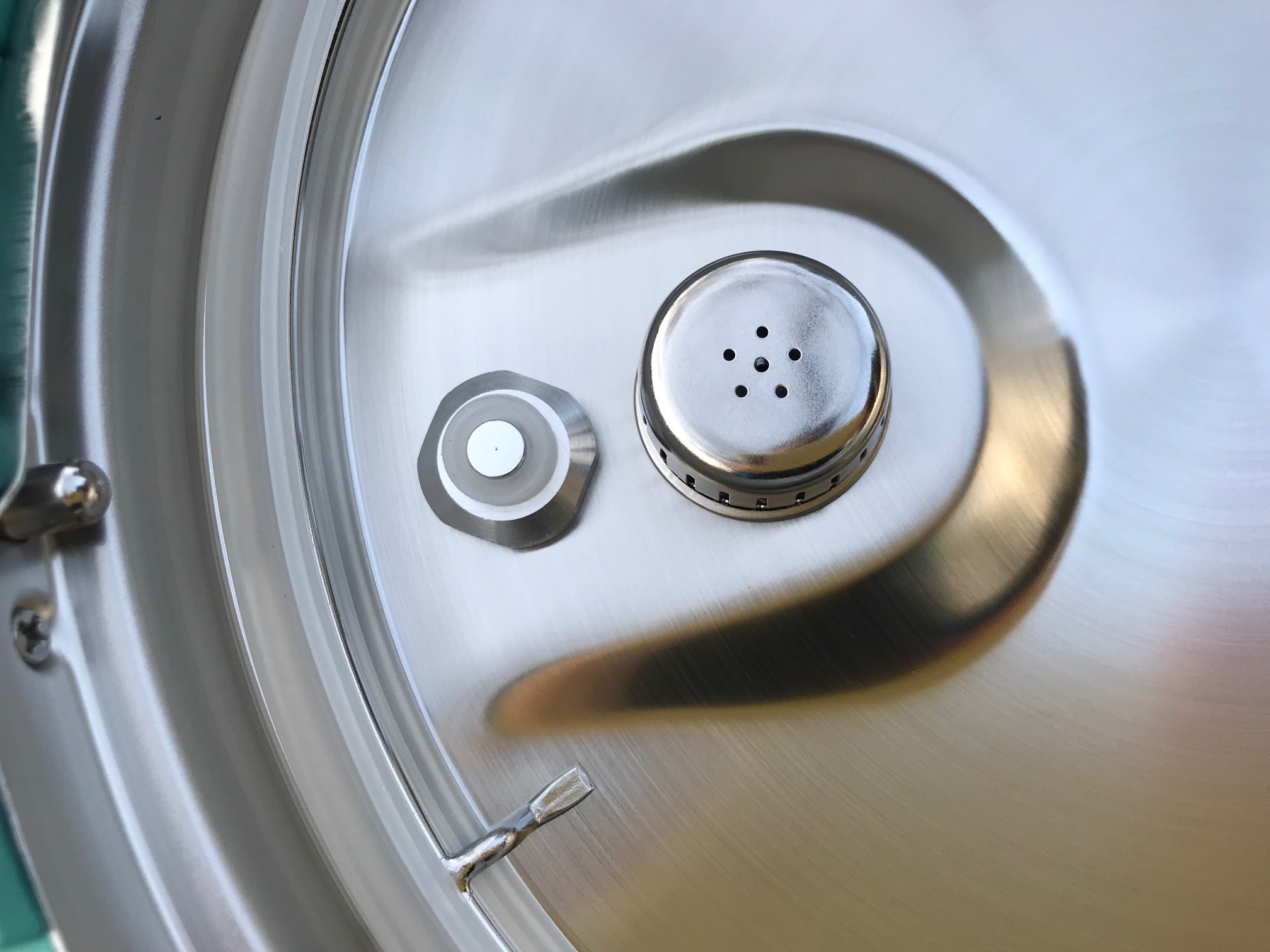
- Chromium (Cr): 14,300 +/- 500 ppm
- Aluminum (Al): 877,600 +/- 14,000 ppm
- Zinc (Zn): 217 +/- 39 ppm
- Copper (Cu): 169 +/- 62 ppm
- Nickel (Ni): 2,824 +/- 202 ppm
- Iron (Fe): 57,400 +/- 1,800 ppm
- Vanadium (V): 182 +/- 42 ppm
- Titanium (Ti): 133 +/- 48 ppm
- Platinum (Pt): 157 +/- 62 ppm
- Manganese (Mn): 1,649 +/- 522 ppm
Continue reading below the images.
White Enamel on Exterior of lid (image above):
- Chromium (Cr): 101,200 +/- 1,100 ppm
- Zinc (Zn): 806 +/- 148 ppm
- Copper (Cu): 1408 +/- 367 ppm
- Nickel (Ni): 69,000 +/- 1,400 ppm
- Iron (Fe): 632,300 +/- 2,600 ppm
- Titanium (Ti): 164,100 +/- 1,700 ppm
- Cobalt (Co): 9,022 +/- 1,378 ppm
- Manganese (Mn): 19,400 +/- 1,600 ppm
Exterior Teal Plastic (image above):
- Barium (Ba): 20,500 +/- 1,100 ppm
- Vanadium (V): 15,400 +/- 800 ppm
- Titanium (Ti): 35,600 +/- 1,700 ppm
Thank you for reading and sharing these results!
As always, please let me know if you have any questions.
Tamara Rubin
#LeadSafeMama
Amazon links are affiliate links. If you purchase something after clicking on one of our links, Lead Safe Mama, LLC may receive a small percentage of what you spend (at no extra cost to you). Thank you for supporting our advocacy work in this way.
To make a contribution in support of my advocacy work please click HERE.
For those new to this website:
Tamara Rubin is a multiple-federal-award-winning independent advocate for childhood Lead poisoning prevention and consumer goods safety, and a documentary filmmaker. She is also a mother of Lead-poisoned children (two of her sons were acutely Lead-poisoned in 2005). Since 2009, Tamara has been using XRF technology (a scientific method used by the U.S. Consumer Product Safety Commission) to test consumer goods for toxicants (specifically heavy metals — including Lead, Cadmium, Mercury, Antimony, and Arsenic). All test results reported on this website are science-based, accurate, and replicable. Items are tested multiple times to confirm the test results for each component tested. Tamara’s work was featured in Consumer Reports Magazine in February of 2023 (March 2023 print edition).
Never Miss an Important Article Again!
Join our Email List








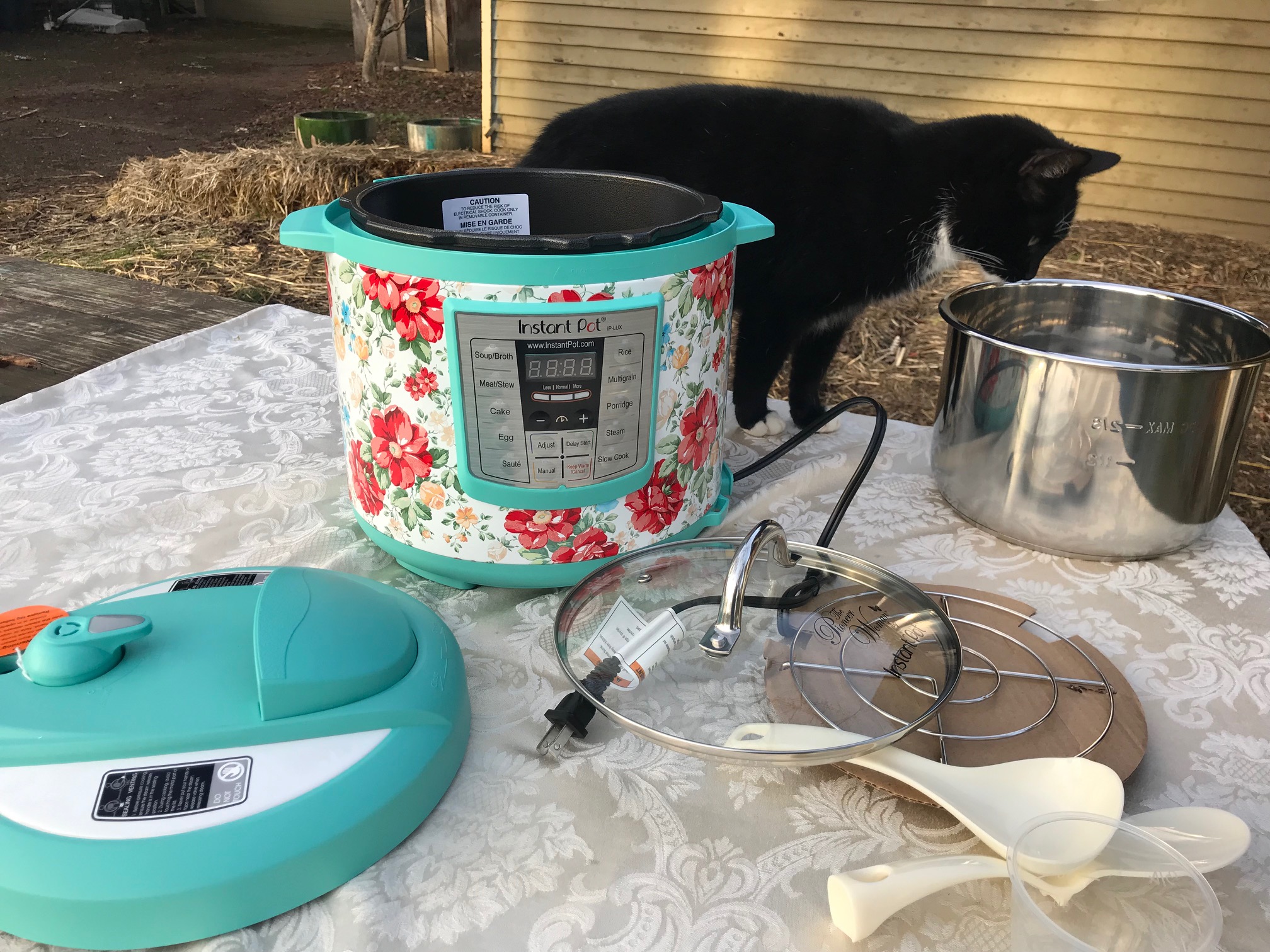
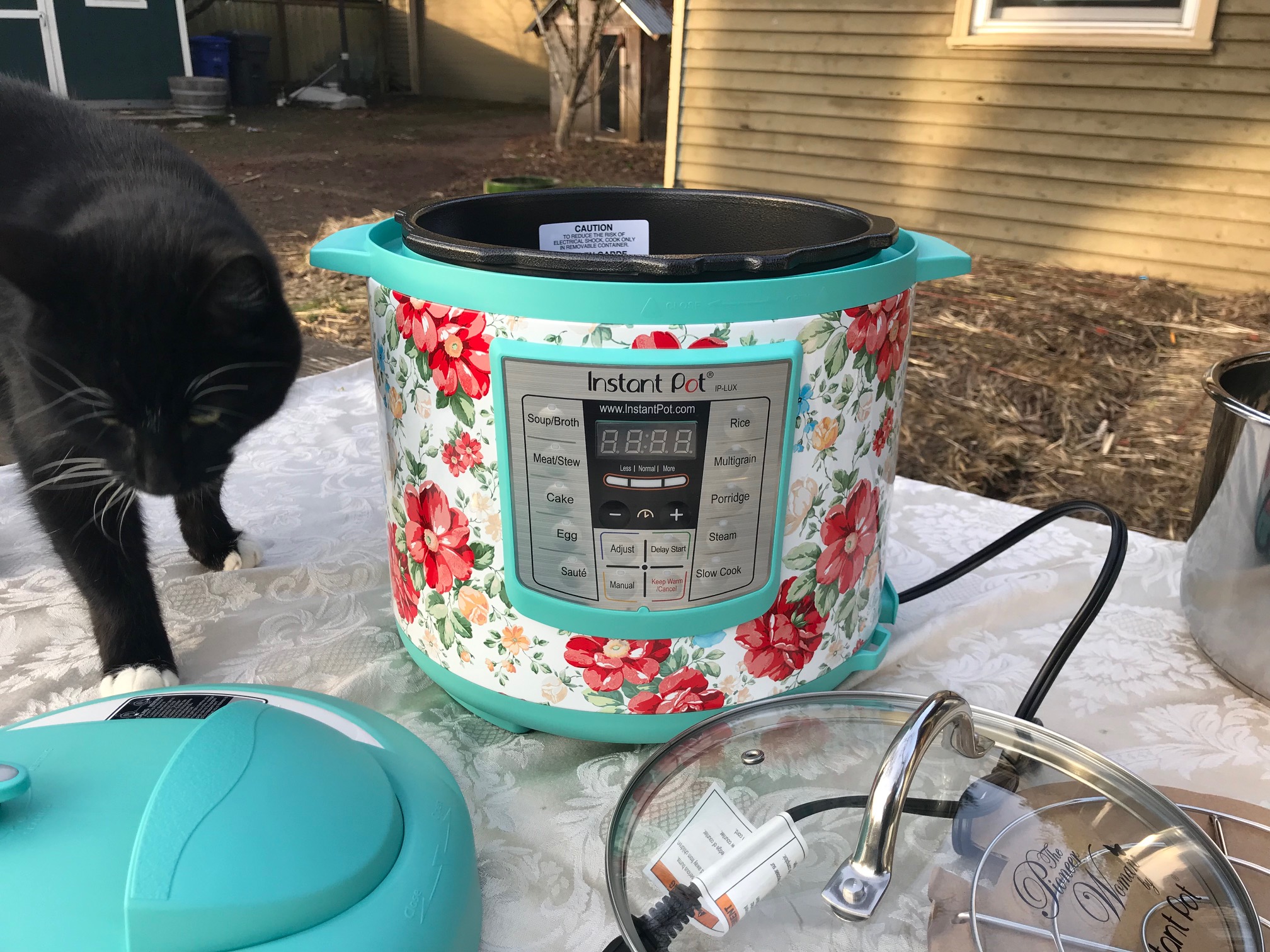
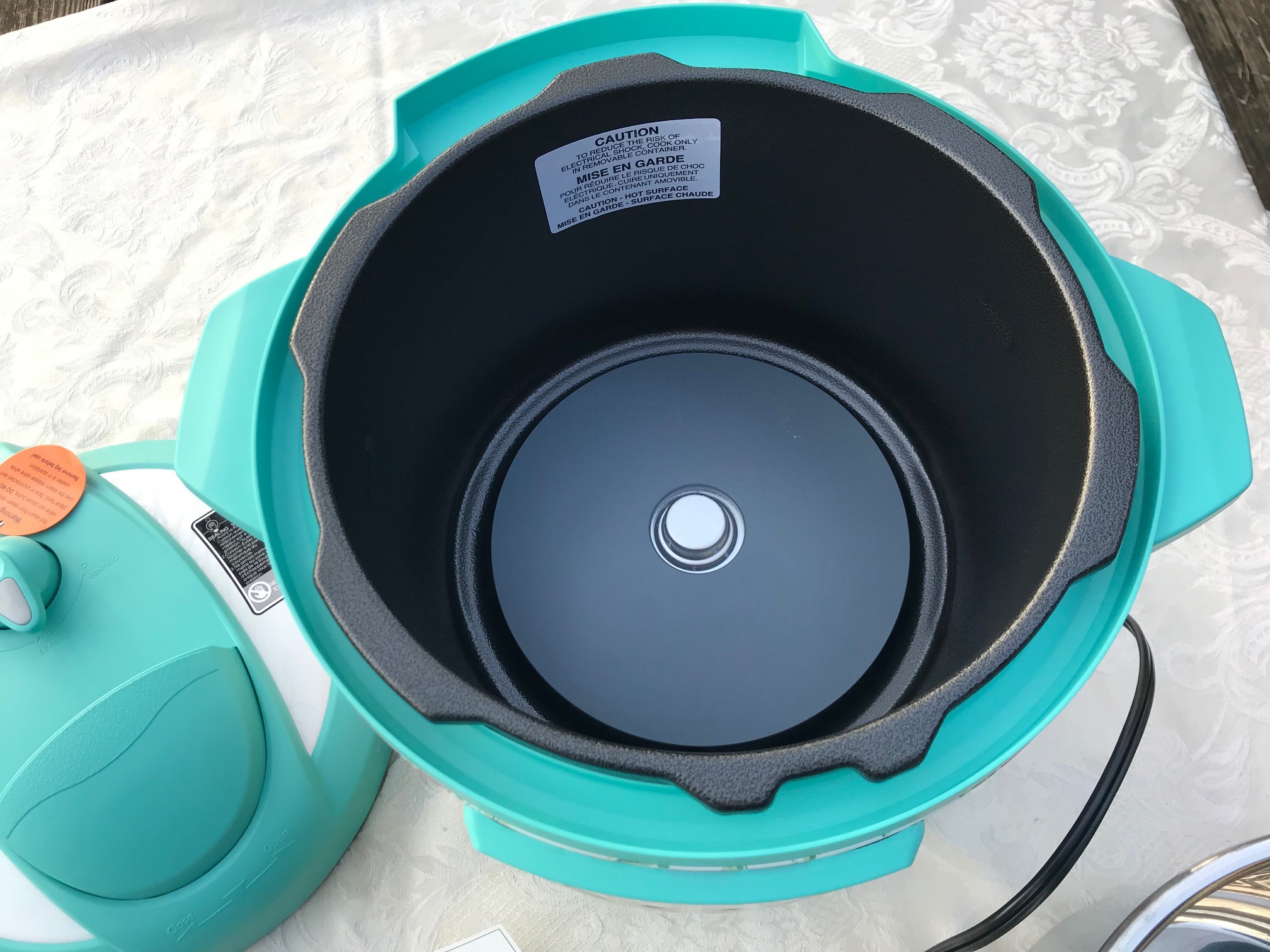
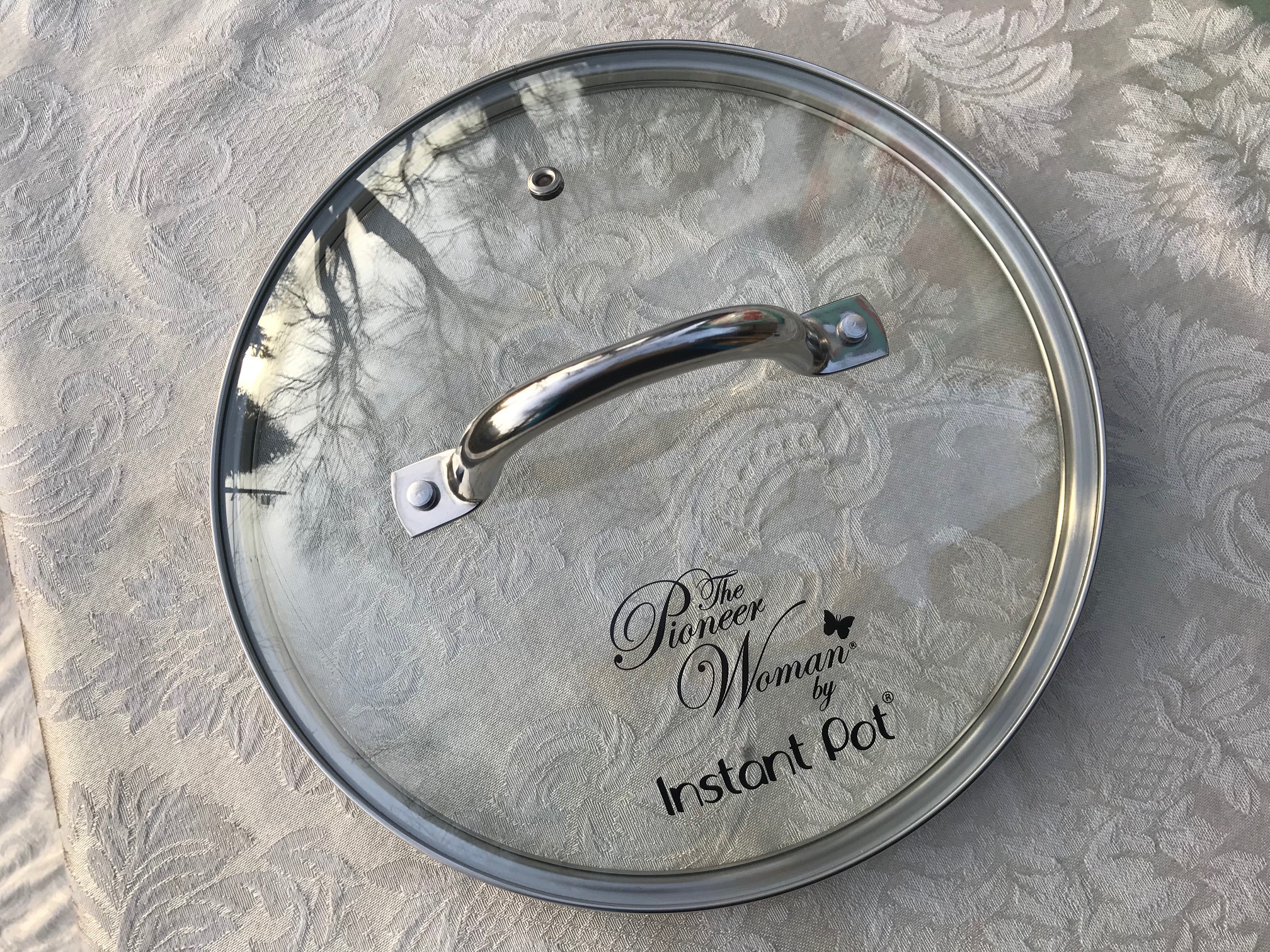
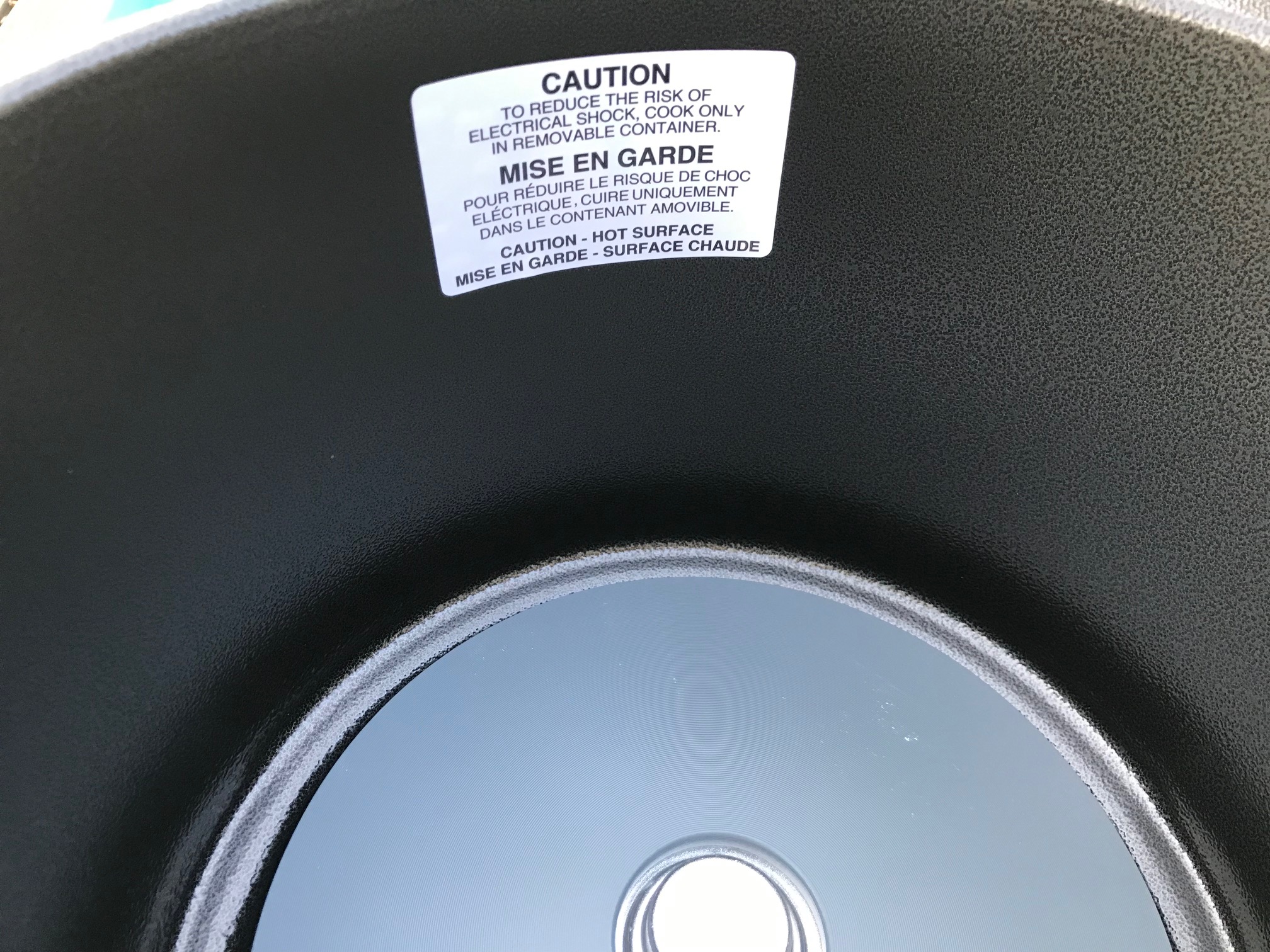
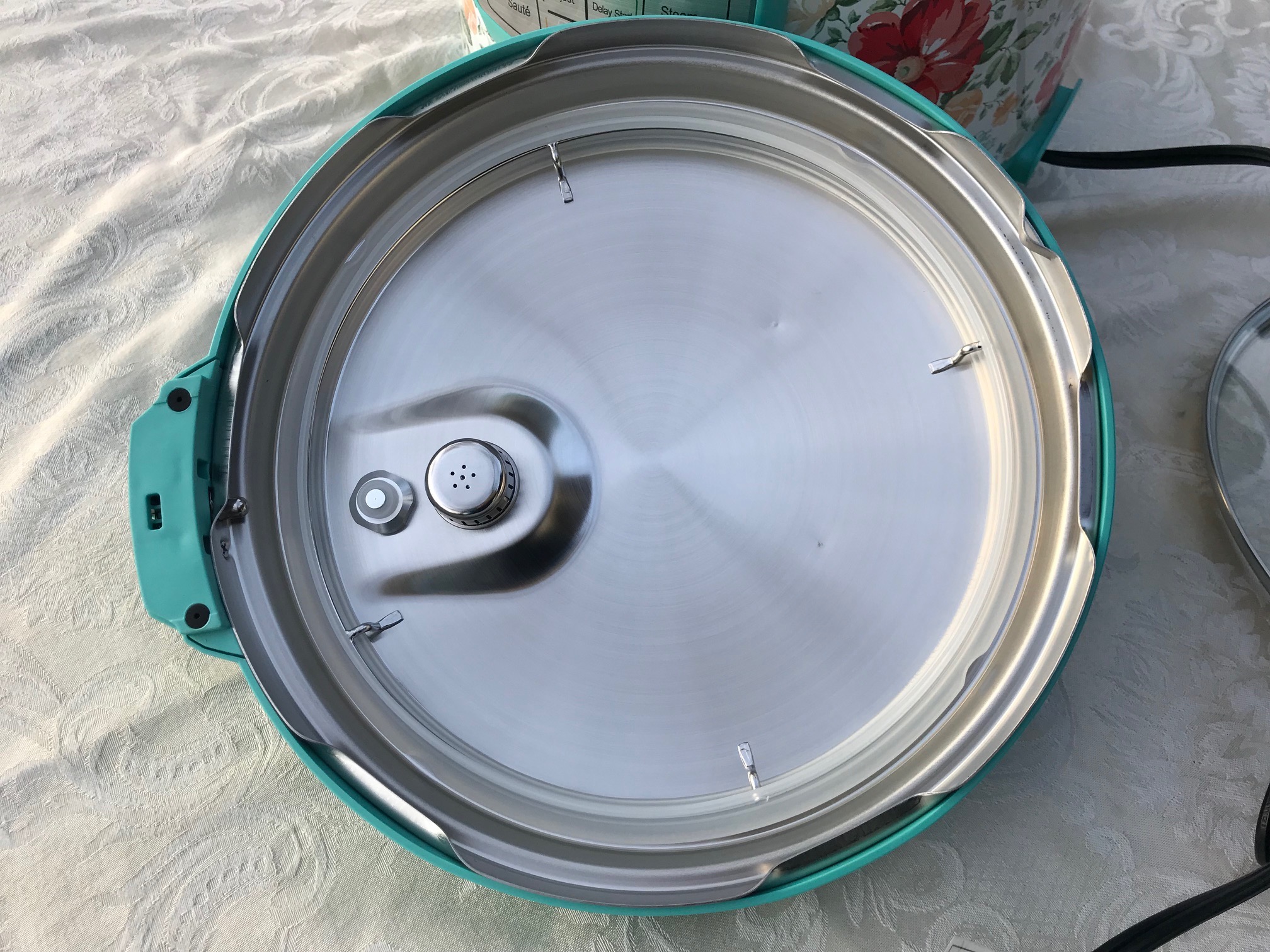
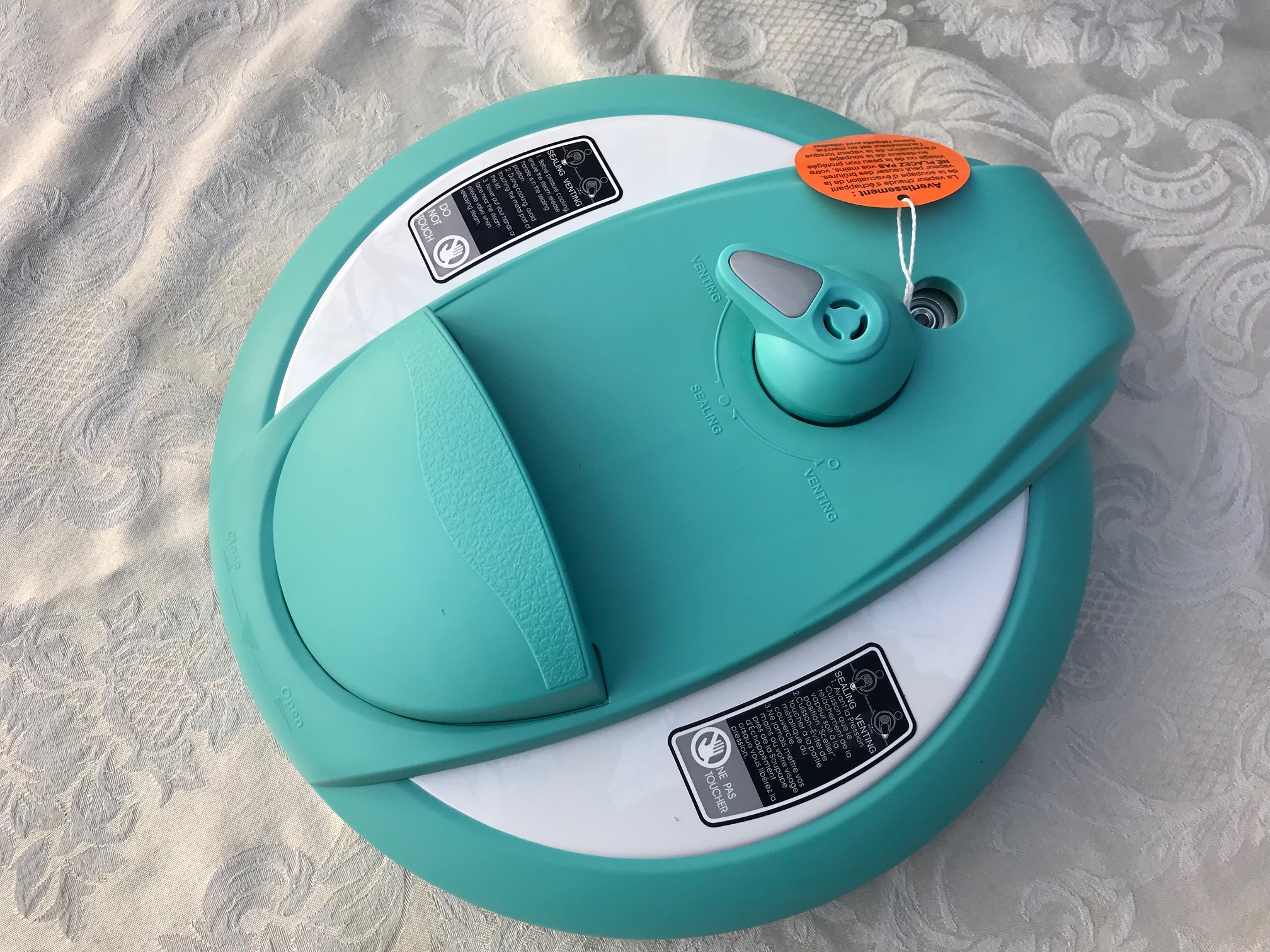
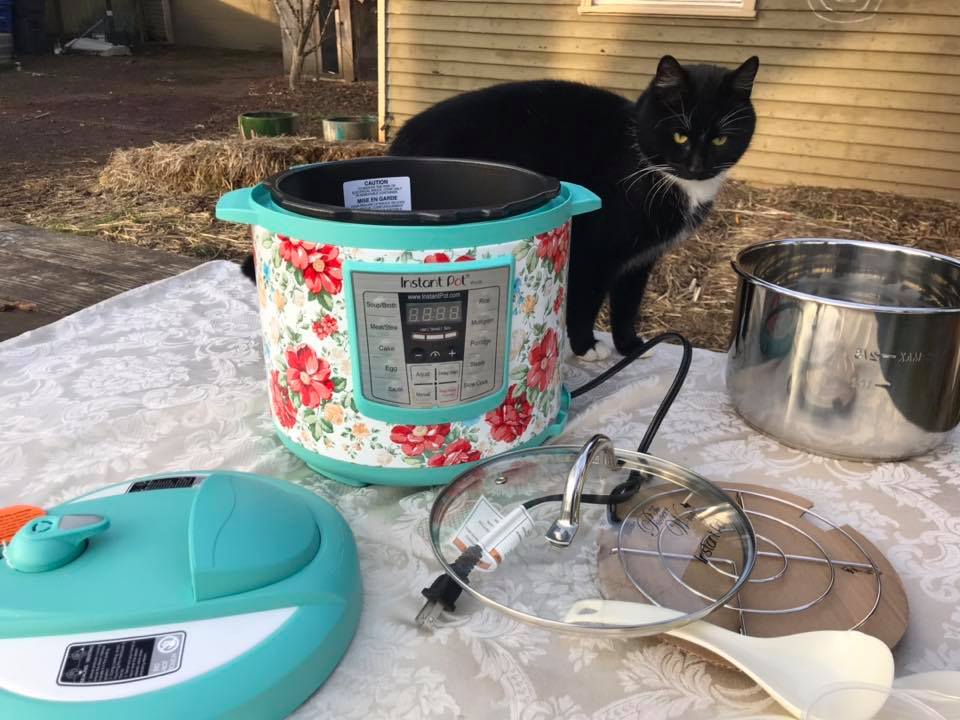
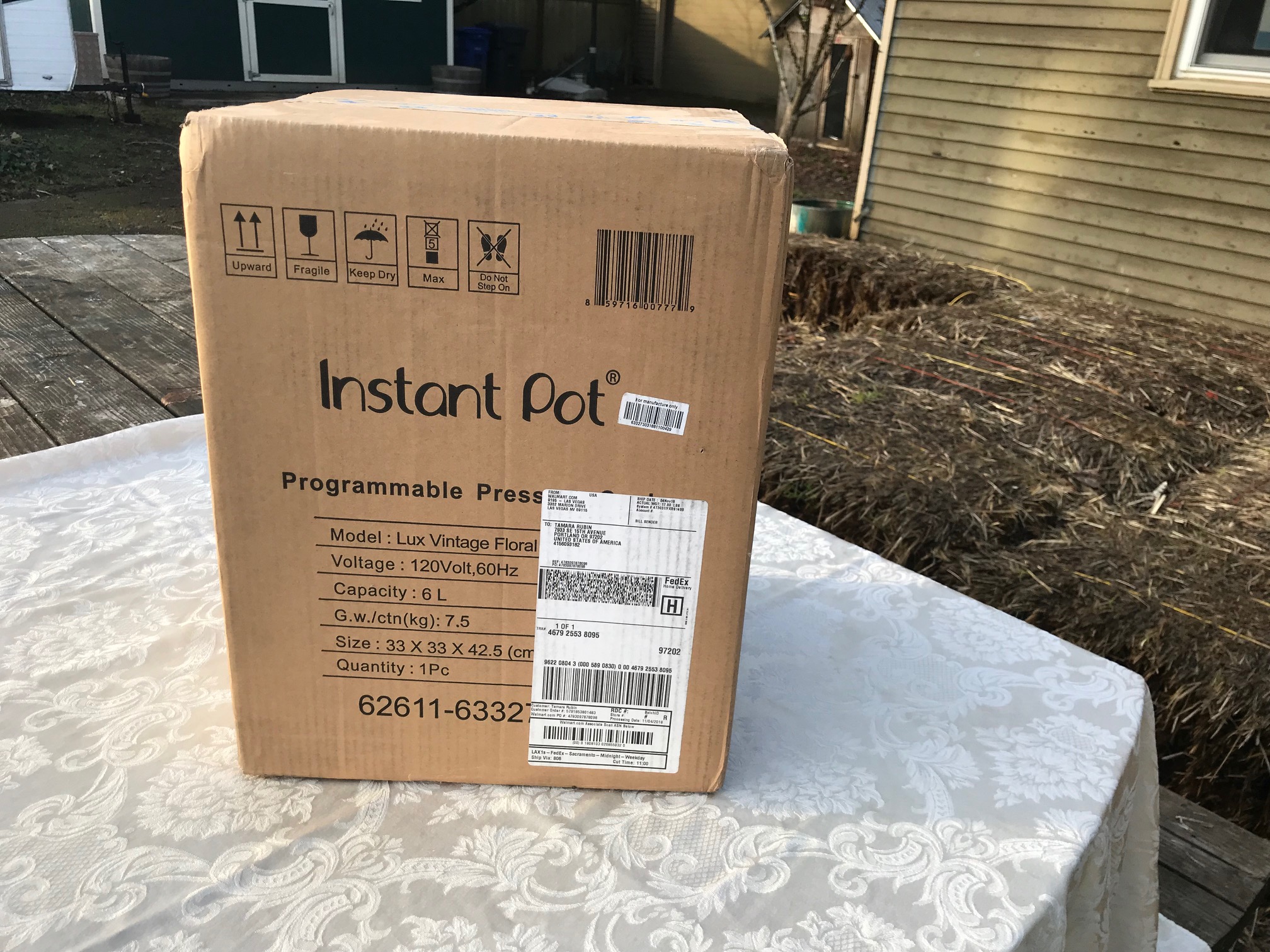
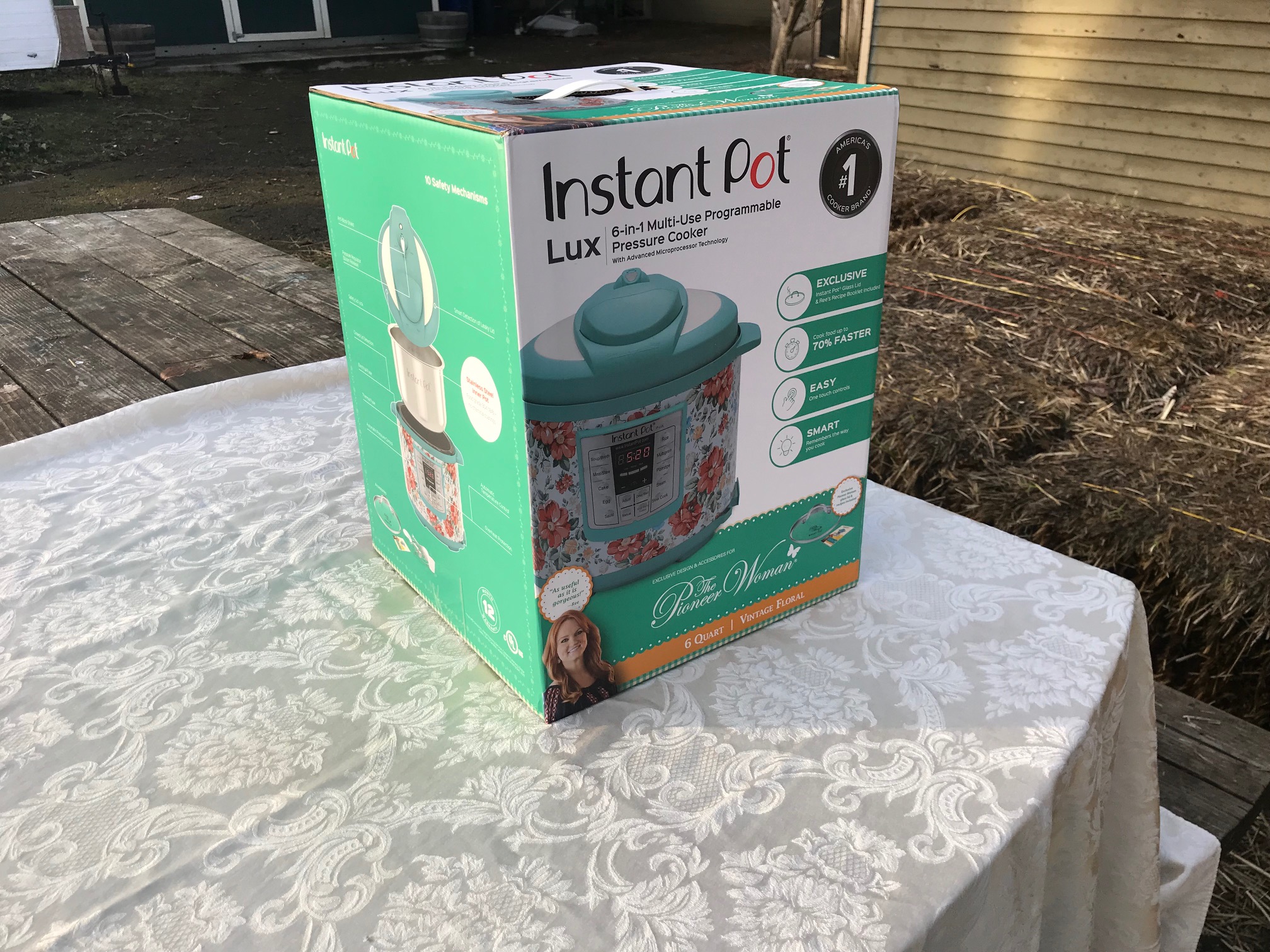
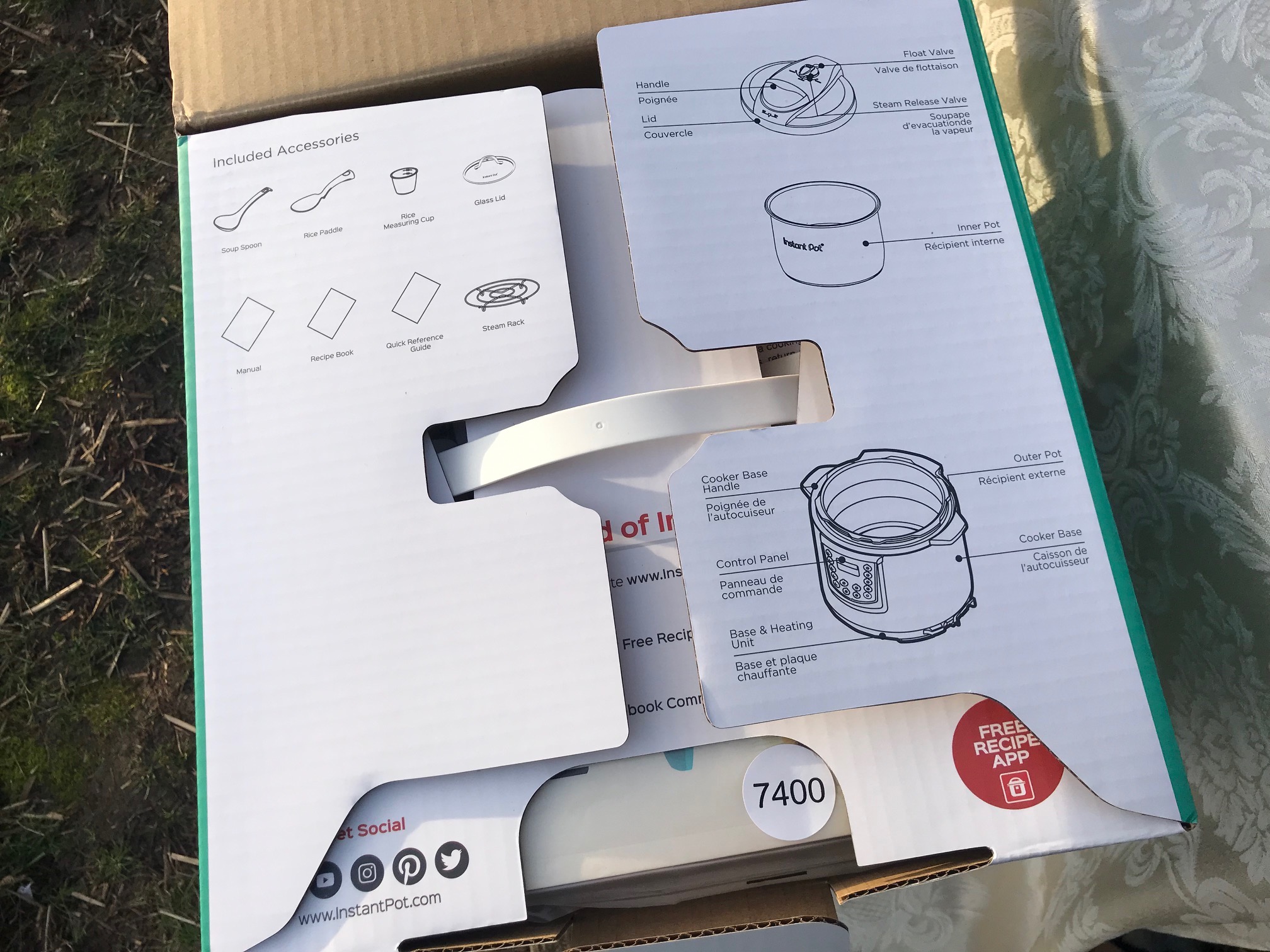
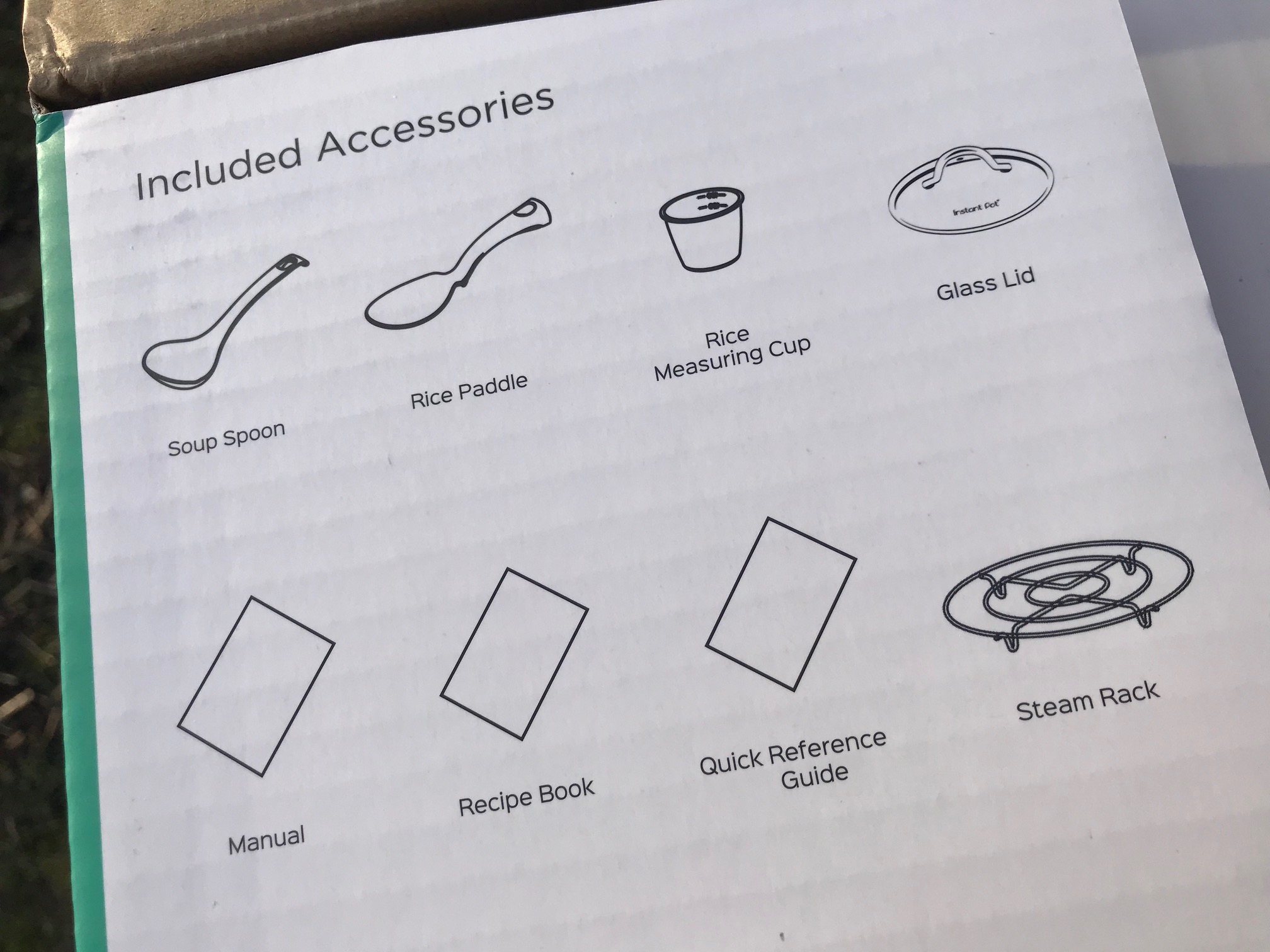
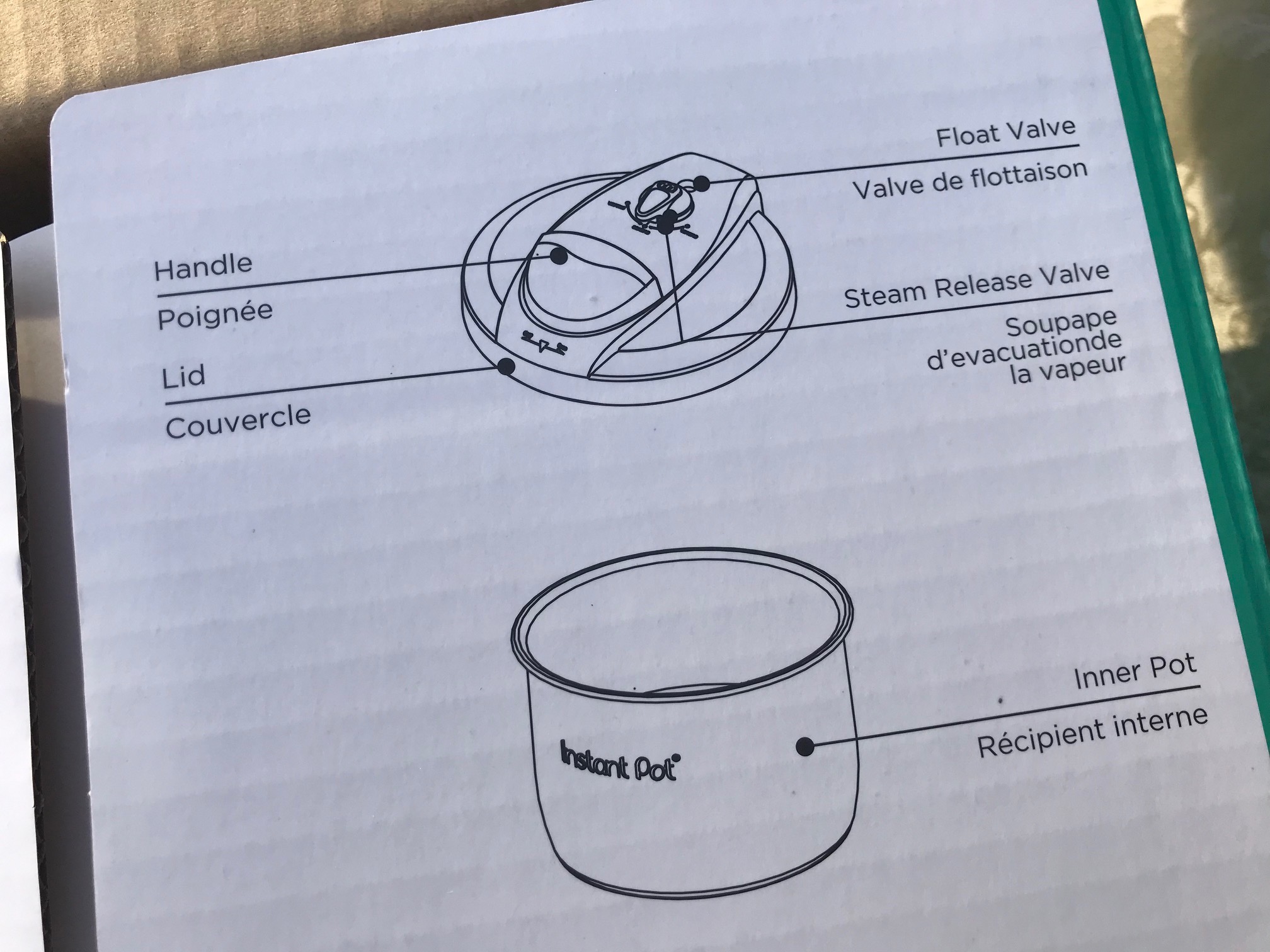
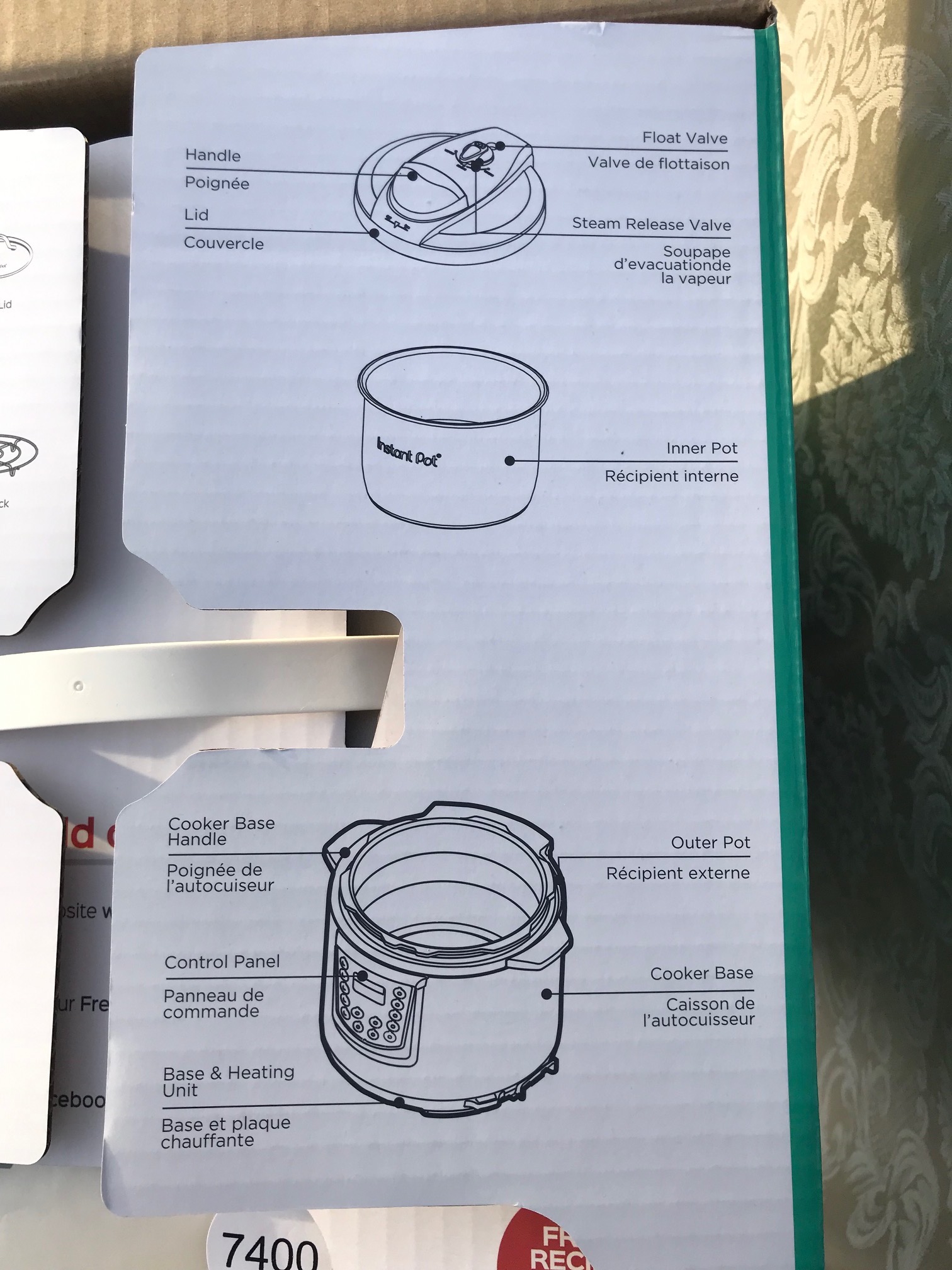
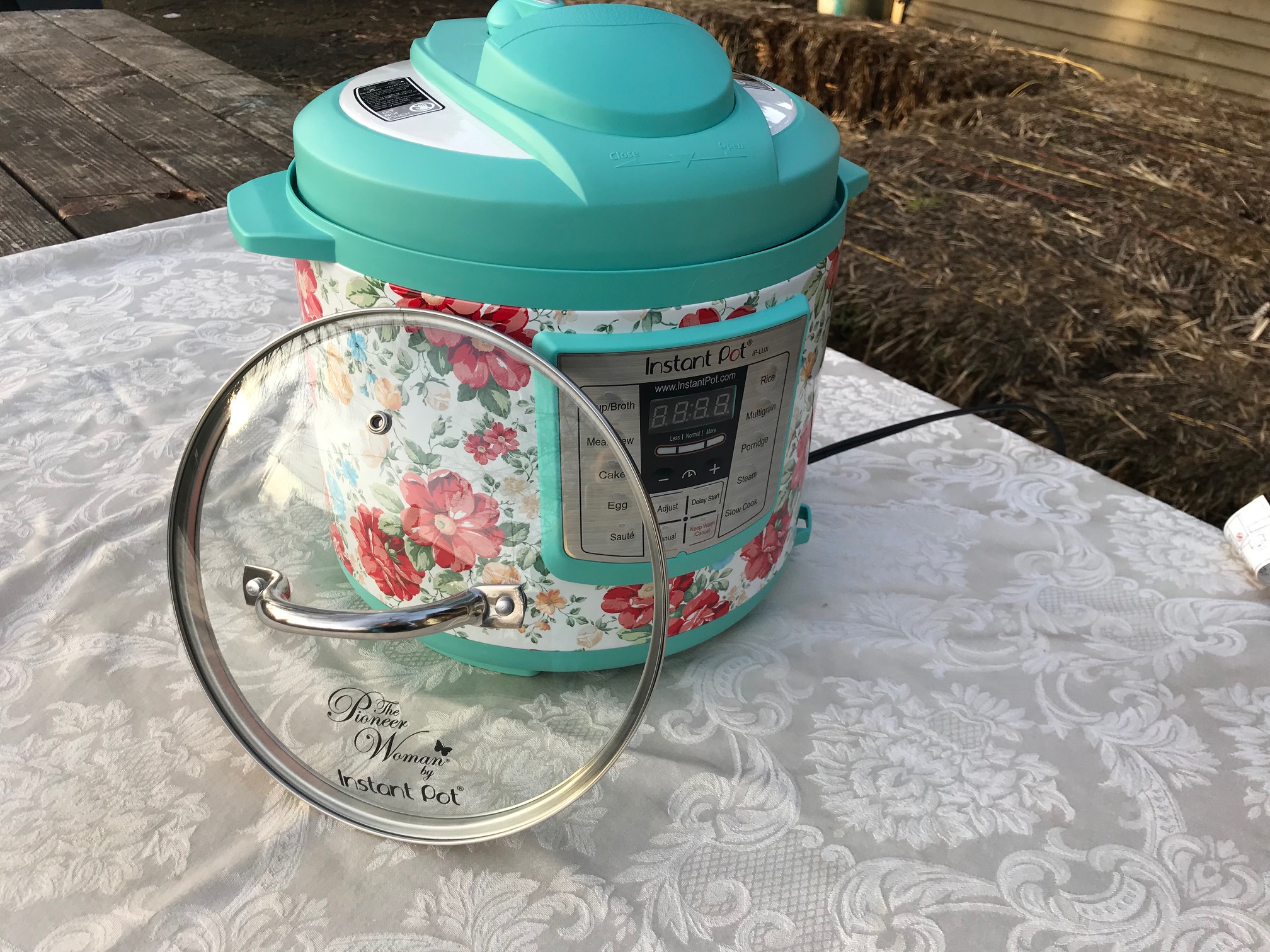
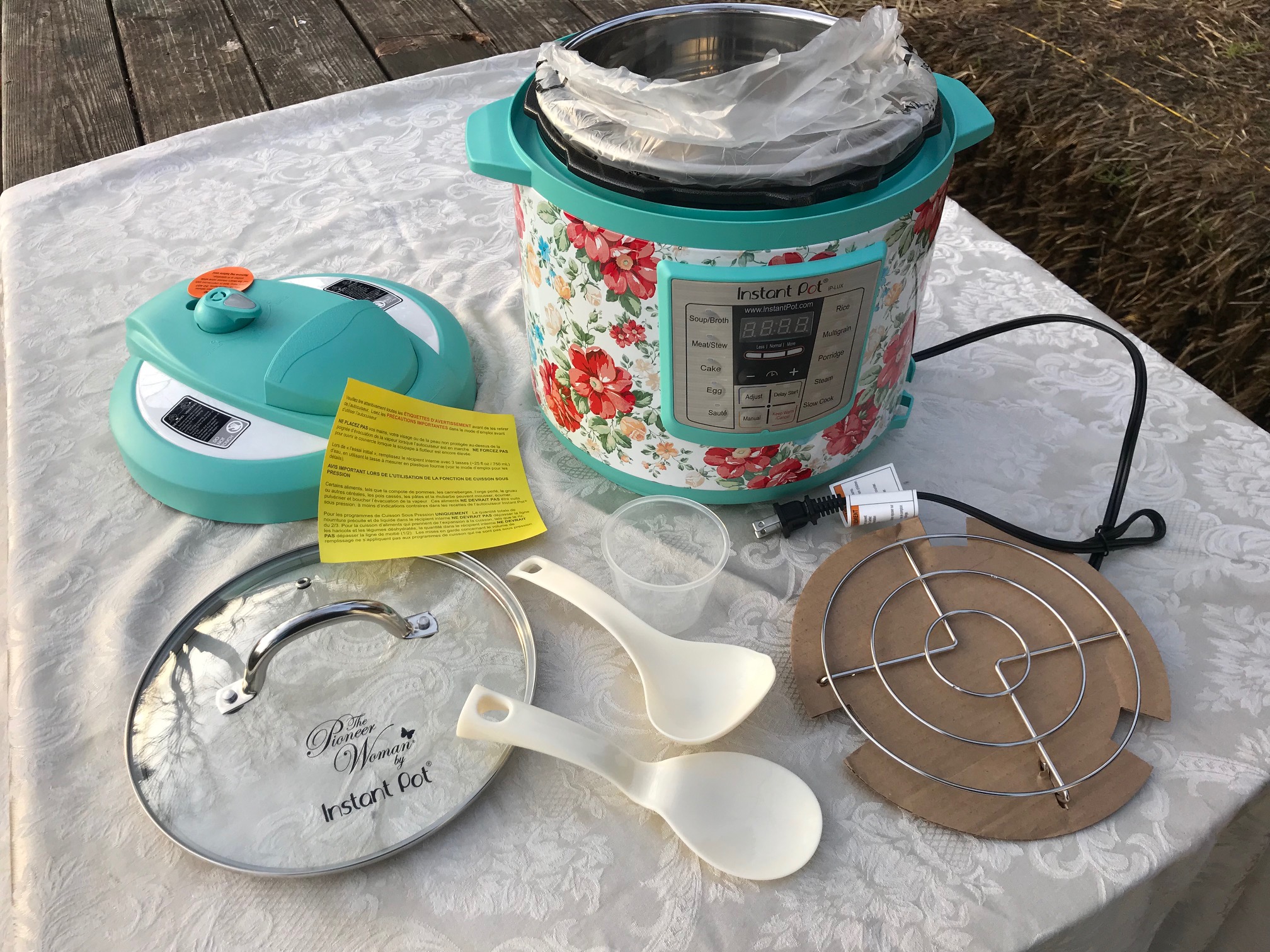
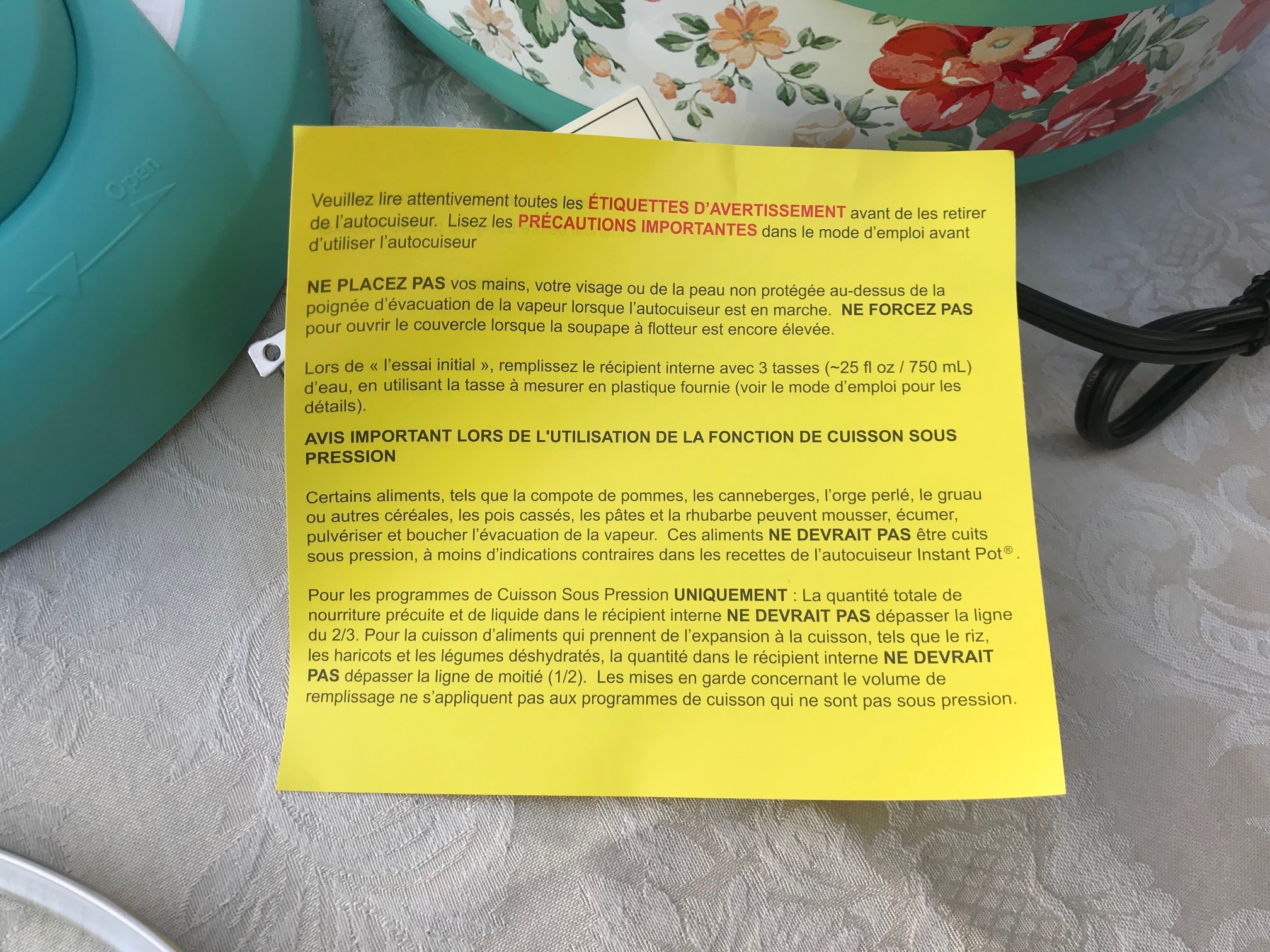
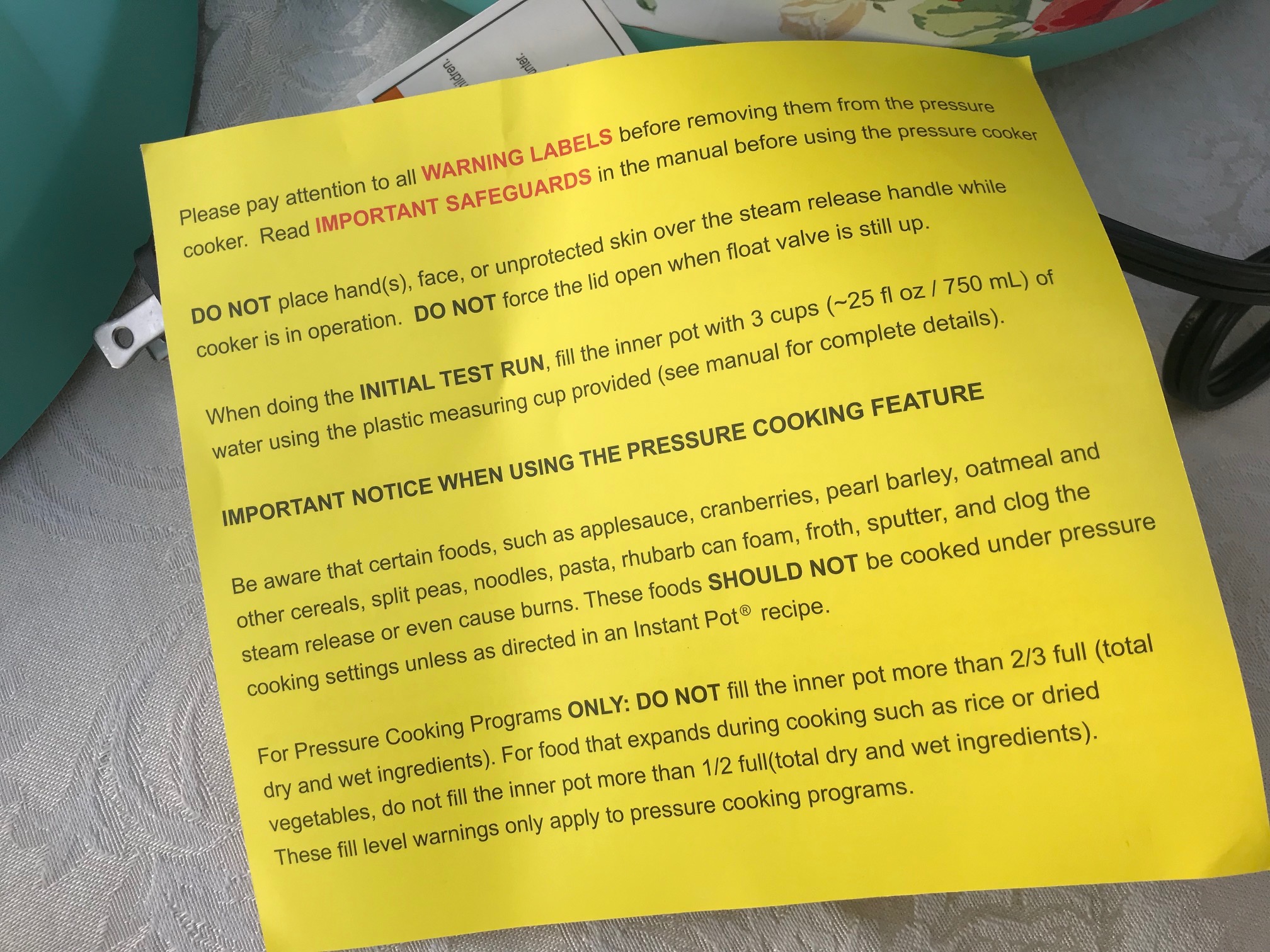
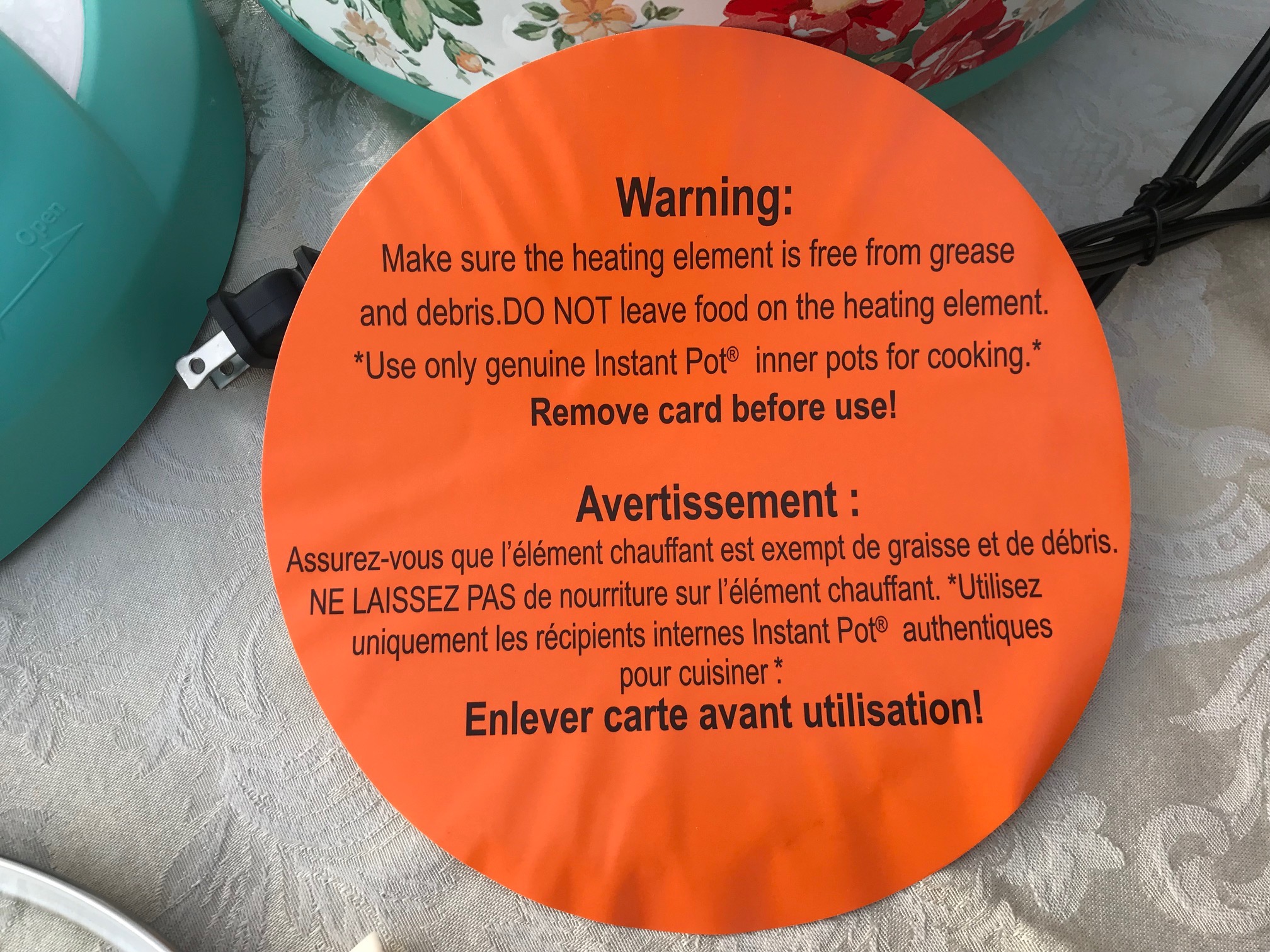
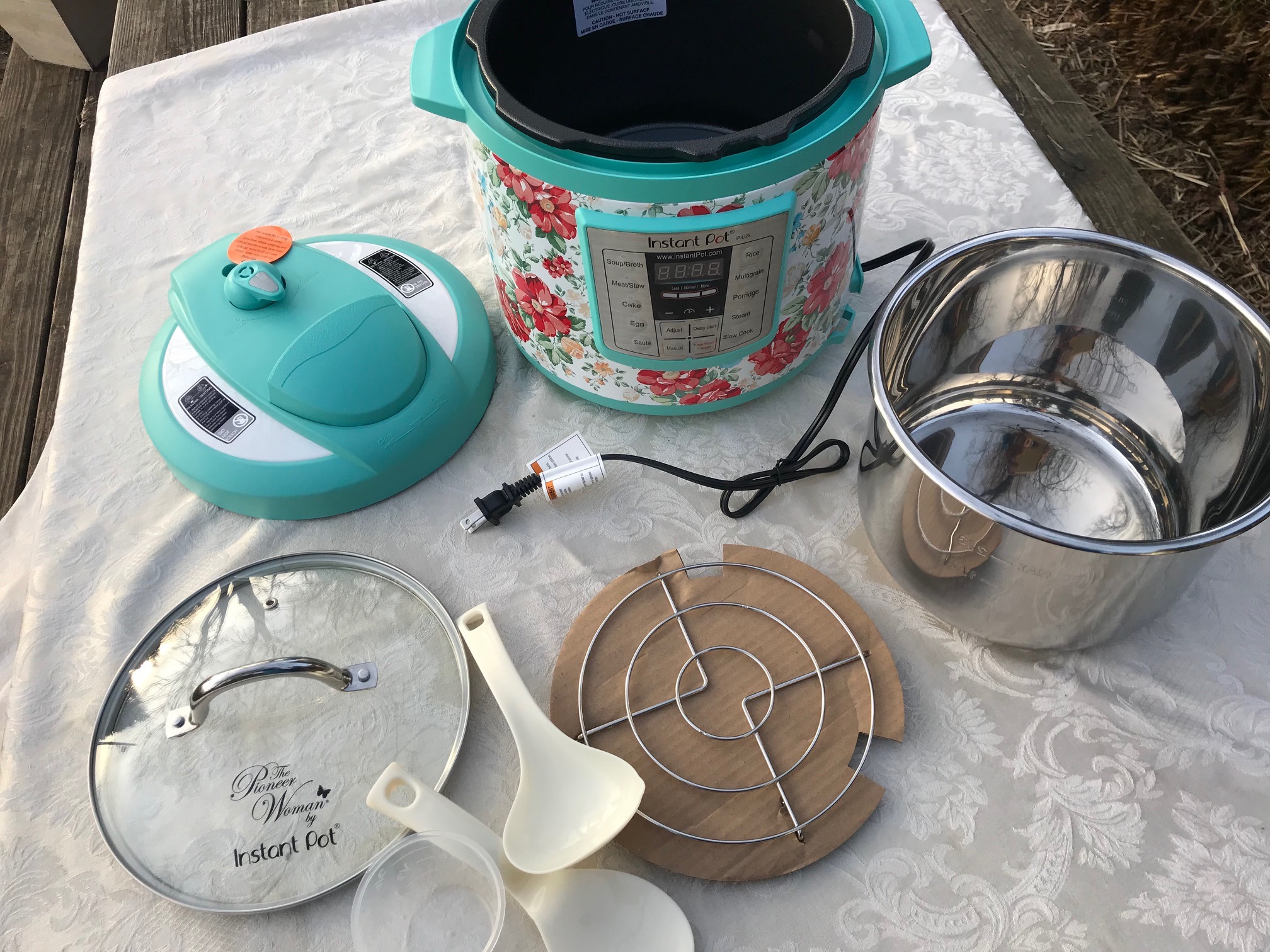
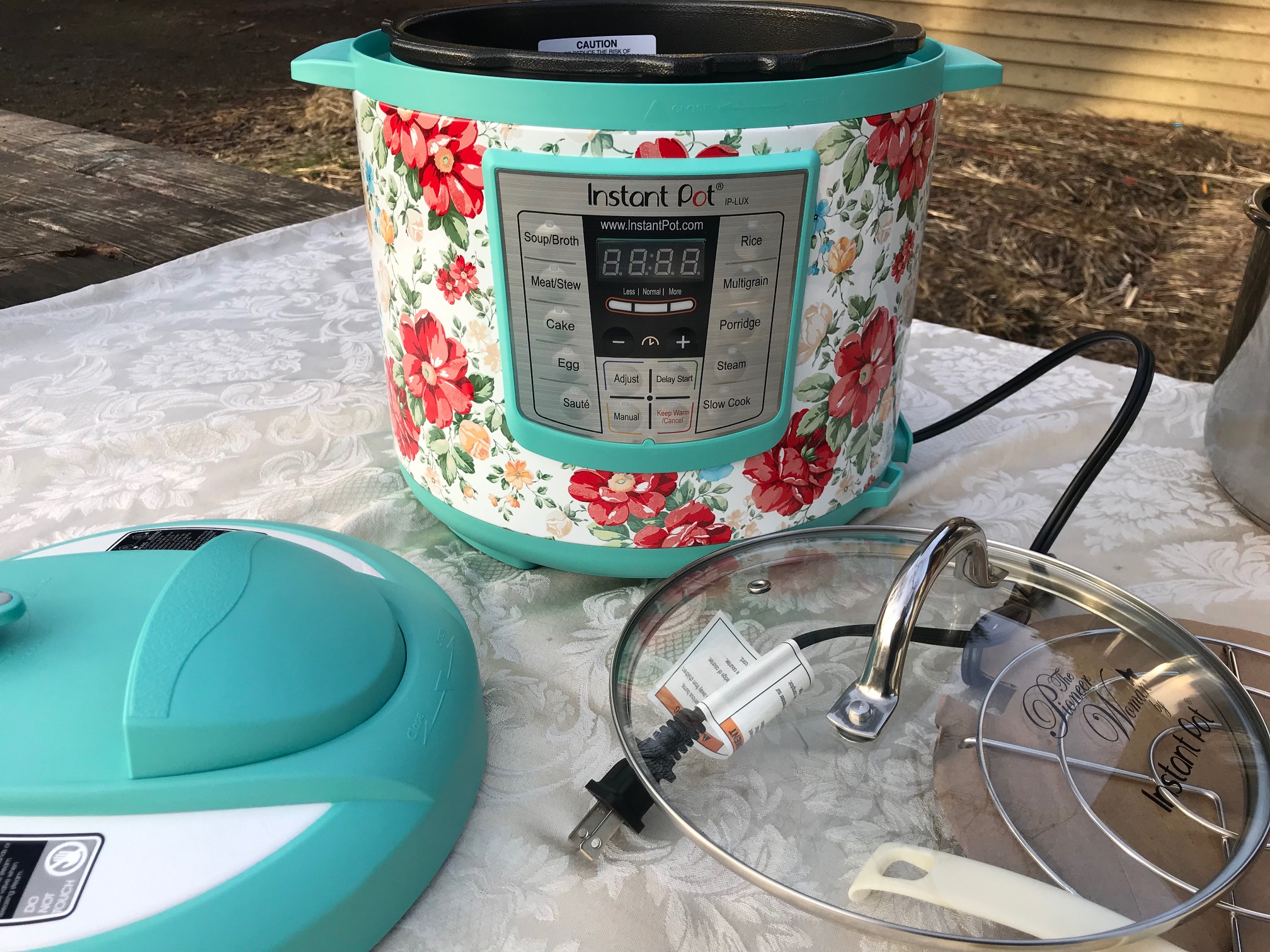

Hi Tamara. Thank you for all of your work in the area of dinnerware.
May I purchase lead testing kits for different pieces of China I have?
I don’t know how many pieces can be tested with one stick (kit)?
I will send check or can give you my Mastercard or visa number
Thank you!
Also I get peanut butter in plastic jars all the time at Aldi. What do you recommend?
Thank you for your time
Have you any knowledge of the possible toxicity levels in a Fagor MultiCooker?
Thank you so much for the in depth information and specifying that the lead is NOT anywhere it would come in contact with actual food, perhaps this will change my husbands mind about allowing one in our house! This way I could contribute more to the cooking of meals in our household, my husband does nearly all of the cooking because he loves to AND he’s great at it!
Hi Amber,
Thanks for commenting.
Of course with my experience (as parents of acutely Lead poisoned children) we are pretty strict about what we allow in our home and we do use one of these instant pots several times a week (the regular one – not the Pioneer Woman one) because it is among the lowest Lead options out there for this sort of appliance. Here’s the one we use: https://tamararubin.com/2018/08/asktamara-does-your-instant-pot-have-lead-xrf-test-results-for-a-6-quart-instant-pot-purchased-in-july-2018-from-amazon/
That said – my husband does all the cooking too! 😉 Our Instant Pot is HIS (not mine!) I have never once used it and don’t know how (I hate appliances!)
Tamara
i had my instant pot recently tested with an XFR and it was 0.0 for lead including the gray heating plate…
Hi Nicole – with a reading like “0.0” it sounds like it was not an XRF Instrument designed to test consumer goods. An instrument set up for testing paint cannot accurately test consumer goods. I have a post that covers that here:
https://tamararubin.com/2016/02/tomorrow/
Tamara
Doesn’t the aluminium content ring a warning sign? Aluminium is also a known carcinogen. If I am understanding correctly, the heating element is over 90% aluminium. Isn’t this a bad idea? Or am I mixing up things?
Hi Justin, all of the heating elements of this sort of plug-in cooker tend to be Lead-contaminated aluminum. The aluminum does not touch the food. You have to decide for yourself if that is something you are comfortable with. I am not 100% comfortable with the Lead in the heating elements of these, but we own one and my husband uses it because it is the least-toxic option of all of the similar devices out there (and the toxic components do not touch the food and appear to have a Lead-free enamel over them.)
Tamara
*Vitaclay multi cooker or Instant Pot multi use.*
Hi, Tamara, I wonder wich of these cookers are the safest ones realated on having less amounts of Lead.
I understand that they have small amounts of lead, but wich one is the safest one ?
Wich one do you trust the most?
I really appreciate your kind reply
Have an excellent day
Ixel Larios.
VitaClay does not have small amounts of Lead… it has quite a bit of lead. I would never use that product.
Thanks a lot for your super fast reply I really appreciate it
What about if I keep with the Instant Pot multi use cooker?
Thanks a lot ☺️
Ixel Larios